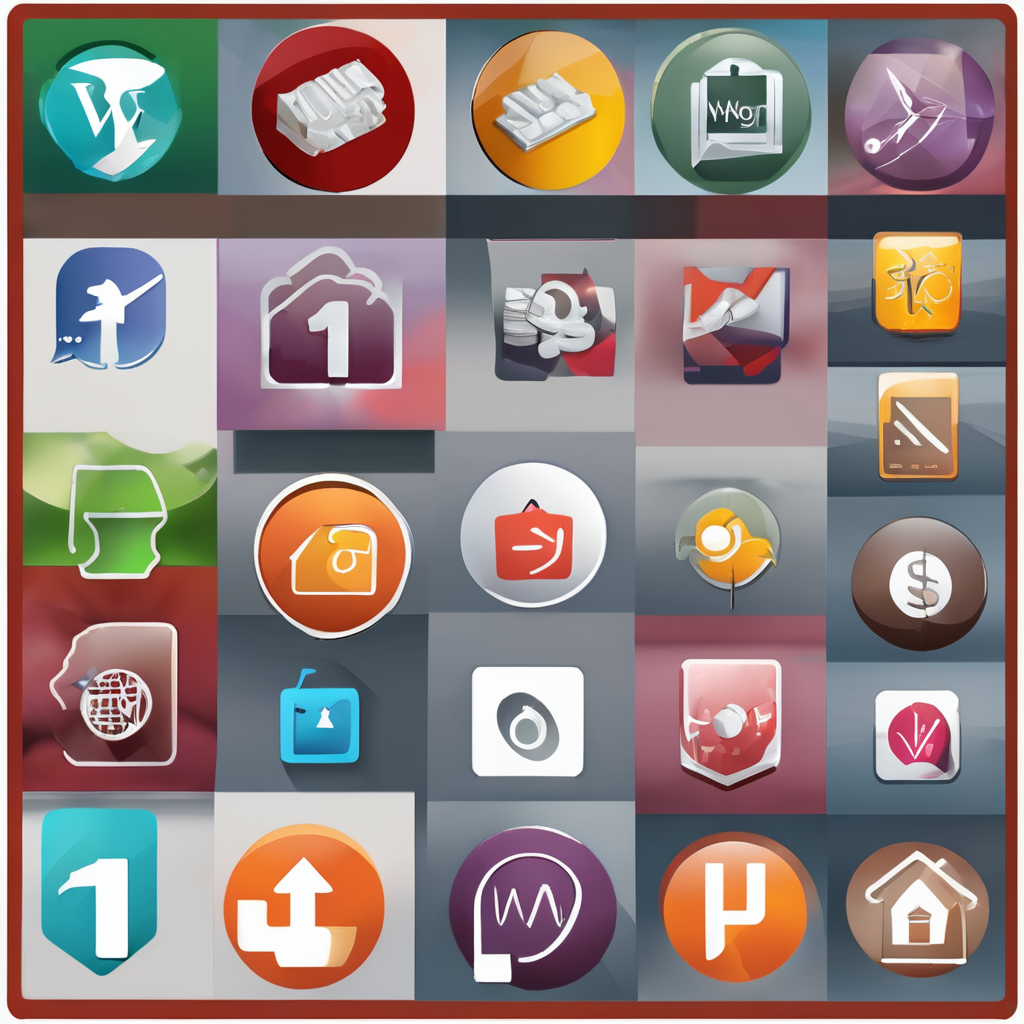Impact of Recent Technological Innovations in UK Computing on Daily Life
Recent UK computing innovations have significantly transformed everyday experiences, influencing sectors such as communication, health, education, and productivity. These technological advances integrate seamlessly into daily routines, offering practical benefits that enhance convenience and efficiency.
In communication, computing advances enable faster, more reliable connections, empowering individuals and businesses to interact without geographical barriers. Health systems benefit through the adoption of AI and data analytics, improving diagnostics and personalized treatment. Education has seen a surge in digital learning platforms designed to support personalized student engagement, driven by cutting-edge computing technology. Meanwhile, workplace productivity grows as automation and cloud computing solutions simplify tasks and optimize workflows.
Also to see : Boosting cybersecurity through effective product lifecycle management
Experts consistently highlight the importance of these advancements, noting not only their current impact but also the foundation they provide for future improvements. Their insights underline that the practical benefits technology introduces go beyond convenience; they represent the backbone of a resilient, adaptable society.
Collectively, these innovations emphasize the dynamic role UK computing plays in reshaping daily life—showcasing the tangible results of ongoing research and development efforts across the nation.
Also read : How is the Future of UK Computing Technology Shaping Up?
Practical Applications of UK Computing Advances in Everyday Communication
Recent communication technology UK developments have reshaped how people connect across the country. Innovations in computing advances communication include enhanced digital platforms that support seamless video conferencing, instant messaging, and collaborative tools, enabling users to maintain relationships and conduct business remotely with minimal lag or disruptions. For example, UK-based startups have created cloud-based services that integrate real-time translation and accessibility features, making communication more inclusive.
In practical terms, these computing advances communication tools have resulted in increased remote work adoption, with surveys showing over 70% of UK professionals now relying on digital connectivity for daily tasks. Enhanced digital connectivity UK also supports vital services such as telehealth consultations and remote education, ensuring broad access despite physical distance.
Users praise these technologies for their reliability and ease of use, highlighting improvements in communication speed and clarity. Experts emphasize that these innovations not only boost productivity but also foster social inclusion, helping reduce isolation through accessible interaction methods. This digital connectivity UK advancement proves essential for maintaining societal function and resilience, especially during unexpected disruptions like the COVID-19 pandemic, reinforcing the central role of communication technology UK in modern life.
Revolutionizing Healthcare through Computing Technologies in the UK
Recent healthcare technology UK innovations have substantially improved patient care and system efficiency. Notably, computing healthcare applications such as AI-driven diagnostics and advanced data analytics enable earlier disease detection and more personalized treatments. For example, AI algorithms analyze medical images with remarkable accuracy, supporting clinicians in making faster, informed decisions that enhance outcomes.
Digital health innovations have also incorporated remote patient monitoring. Wearable devices and mobile health apps collect real-time data on vital signs, allowing healthcare providers to track patients’ conditions outside traditional settings. This reduces hospital admissions and facilitates proactive intervention.
Experts highlight that these healthcare technology UK advances address growing pressures on NHS resources by streamlining workflows and improving resource allocation. They emphasize that integrating AI and analytics creates a more adaptive, patient-centered system while maintaining data security.
Additionally, research shows that computing technology in healthcare boosts accessibility for underserved populations, enhancing equity. Challenges remain, including ensuring widespread adoption and managing ethical considerations around AI decisions.
In summary, computing healthcare applications and digital health innovations are reshaping the UK health landscape, making care more effective, efficient, and accessible for all.
Enhancing Educational Experiences with Advanced Computing in the UK
Recent educational technology UK initiatives leverage powerful computing in education tools to create interactive and personalized learning environments. Schools across the UK are adopting platforms that use AI and adaptive algorithms to tailor content to individual student needs, boosting engagement and comprehension. For instance, virtual classrooms now integrate real-time feedback and customized pacing, which helps educators address diverse learning styles effectively.
Quantitative studies reveal that digital learning UK solutions increase retention rates and accessibility, especially benefiting students with disabilities or those in remote areas. Devices and apps facilitate collaborative projects beyond classroom walls, promoting skills essential for the digital age. Furthermore, data analytics gather performance insights, enabling educators to refine teaching strategies continuously.
Case studies from UK institutions show practical benefits: improved student outcomes, increased motivation, and better resource allocation. Experts emphasize that integrating educational technology UK supports lifelong learning, essential as industries evolve rapidly. Challenges include ensuring equitable access and effective teacher training, but ongoing advancements offer promising solutions.
In sum, computing in education technologies deliver substantial gains in quality and inclusivity, fostering a more adaptive and future-ready educational system across the UK.
Boosting Productivity and Work Efficiency Using UK Computing Innovations
Recent productivity technology UK developments have revolutionized workplace efficiency by automating routine tasks and optimizing workflows. Computing solutions, such as AI-powered assistants, handle scheduling, data processing, and customer interactions, freeing employees to focus on strategic activities. Cloud computing platforms enable seamless collaboration across remote teams, ensuring resources and information remain accessible anytime, anywhere.
A notable example includes UK companies adopting intelligent automation tools that reduce manual errors and accelerate project delivery. Surveys reveal that over 65% of UK businesses experienced measurable increases in output after integrating digital efficiency tools, underscoring their practical benefits technology provides.
Furthermore, computing for work exploits data analytics to identify bottlenecks and improve decision-making processes. This approach not only enhances productivity but also supports sustainable work practices by minimizing unnecessary resource use.
Experts emphasize that these computing for work innovations contribute to a dynamic, adaptable workforce, which is critical in a rapidly evolving economic landscape. Implementing these solutions faces challenges such as training needs and cybersecurity concerns; however, ongoing advancements continue to offer promising pathways. Overall, the integration of UK computing innovations is a decisive factor in boosting work efficiency across sectors.
Expert Perspectives and Statistical Insights on UK Computing Trends
Insights from UK computing experts reveal a consistent pattern: recent technological advances are rapidly reshaping sectors from healthcare to education. Experts underline that these innovations are not isolated; rather, they reflect an ecosystem advancing in tandem with global digital transformation trends.
Recent data illustrates robust technology adoption statistics across the UK, with over 75% of businesses integrating at least one major computing innovation within the last two years. This widespread uptake confirms the practical efficacy and growing trust in UK computing innovations. Notably, adoption rates vary by industry, with finance and healthcare sectors leading due to high demand for efficiency and data-driven solutions.
Leading researchers also emphasize emerging innovation trends UK such as AI integration, cloud migration, and edge computing. They highlight that these trends contribute directly to improvements in daily life transformation, from smarter communication technologies to more responsive health monitoring.
Experts caution that despite enthusiasm, challenges persist, including data privacy concerns and equitable access. Nonetheless, the converging consensus is optimistic: ongoing expertise and careful policy development will enable the UK to maintain momentum in harnessing the practical benefits technology offers.
Impact of Recent Technological Innovations in UK Computing on Daily Life
Recent UK computing innovations have driven a profound daily life transformation across communication, health, education, and productivity landscapes. Central to this evolution are technological advances that enable more efficient interactions, personalized services, and streamlined workflows.
In communication, UK-developed platforms leverage enhanced connectivity and real-time collaboration tools, reducing barriers and fostering inclusivity. In health, computing healthcare applications integrate AI and data analytics to improve diagnostics and patient monitoring, directly boosting care quality. Educational settings benefit from adaptive learning systems tailored to individual needs via sophisticated computing in education software. Meanwhile, workplaces adopt productivity technology UK to automate routine tasks, thus freeing human resources for strategic efforts.
Experts emphasize the practical benefits technology brings beyond surface-level convenience. They note that such progress supports a resilient society better equipped to manage crises and long-term challenges. Adoption statistics reveal growing reliance on these innovations, highlighting UK leadership in integrating transformative digital solutions. The synergy of these developments underlines how recent technological breakthroughs in UK computing continue to reshape everyday life fundamentally and positively.



